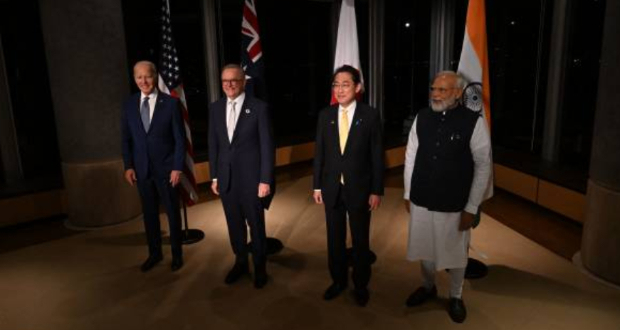On 29 July, the Foreign Ministers of India, Australia, Japan, and the US met in Tokyo for the Quad Foreign Ministers’ Meeting. Although it is fairly routine, the significance of this meeting and the joint statement issued on the occasion is underlined by the context of the complex geopolitical dynamics that preceded the meeting. While the Quad countries have displayed continued synergy on key issues of common interest, recent developments had prompted a rethink on the efficiency and the promise of the grouping. Notably, much of the heat for the diverse and often opposed foreign policy compulsions was directed at New Delhi. Two important events that sparked speculations over the future of Quad were the emergence of a new minilateral, Squad, with Japan, Australia, and the US, the Philippines, and India’s continued engagement with Russia, and Prime Minister Modi’s recent visit to Moscow at a time when the crisis in Europe is at its peak.
Although it is fairly routine, the significance of this meeting and the joint statement issued on the occasion is underlined by the context of the complex geopolitical dynamics that preceded the meeting.
According to many, the emergence of Squad seemed eerily poised to replace the Quad with a specific focus on common geography in the Indo-Pacific, coupled with the willingness of all the member countries of the grouping to aggressively push back against China, especially in the South China Sea region. On the other hand, strategic circles in New Delhi and abroad were rife with speculations over the widening gap of strategic convergences among India and the other Quad partners in lieu of Modi’s display of bonhomie with Russian President Putin, even as the other Quad partners continue to stand firmly with Ukraine in the European context. These two developments raised the question of whether India’s utility for its Quad partners was increasingly diminishing. However, the recent meeting between the Foreign Ministers of the Quad countries in Tokyo, and the joint statement issued thereafter suggests otherwise. A close reading of the joint statement amply clarifies that the Quad members continue to accord critical importance to not only the grouping in the Indo-Pacific but also to the role of India in wider maritime security and governance architecture in the region.




